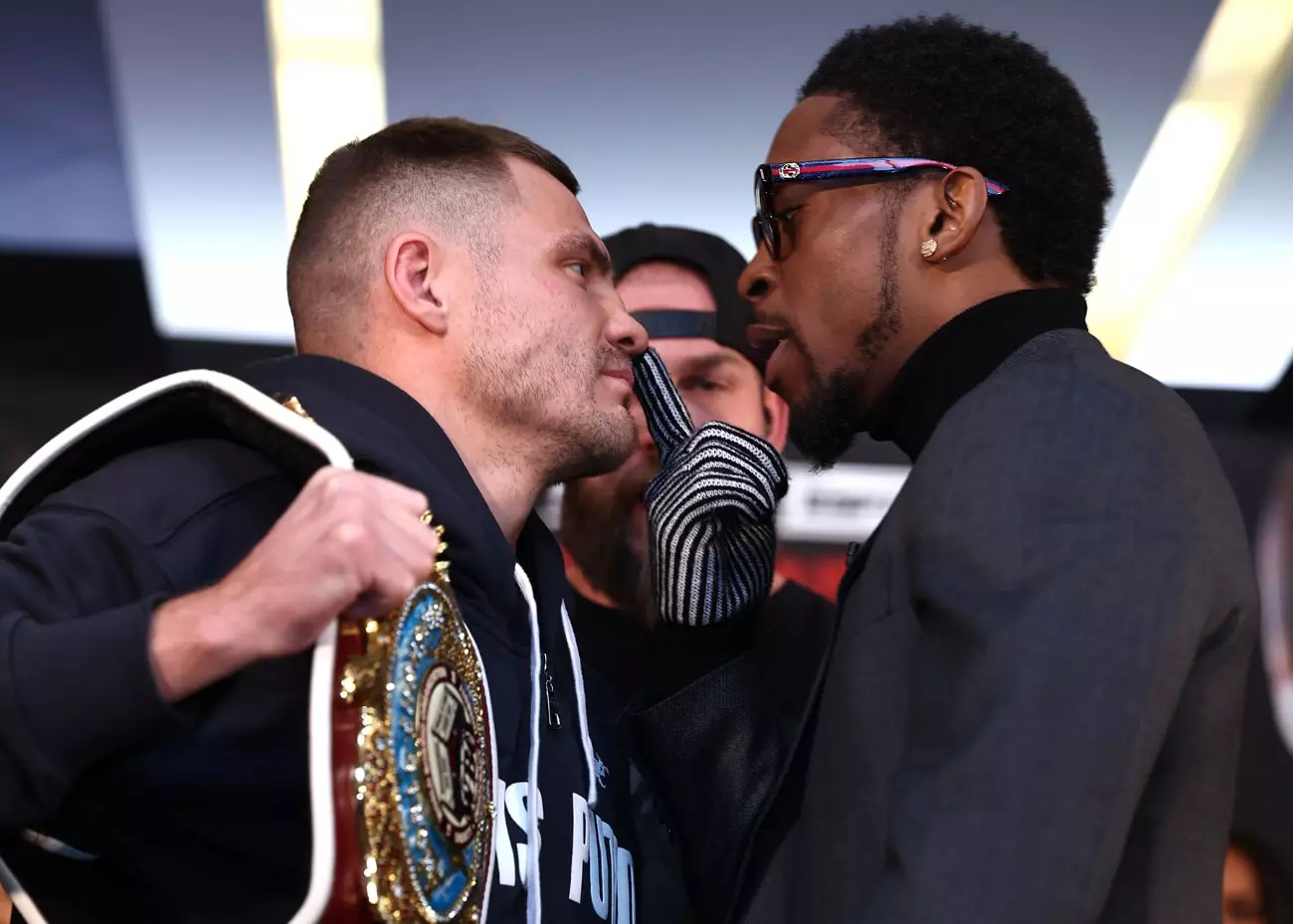The atmosphere was thick with tension as Keyshawn Davis took to the stage for the final press conference ahead of his highly anticipated bout against WBO lightweight champion Denys Berinchyk on February 14th at Madison Square Garden. This event, intended to build excitement for the upcoming fight, quickly devolved into a heated confrontation. Davis accused Berinchyk and his manager, Alex Krassyuk, of delivering a box of bananas and watermelons to his hotel room, a move he deemed overtly racist and inflammatory. Such grave accusations in a sporting context are troubling, as they overshadow what is meant to be a celebration of athletic competition.
Despite Davis’s fervent claims, Berinchyk denied any involvement in the alleged act. He suggested that the incident was a ploy instigated by others to create sensationalist hype for the match. This lack of accountability raises questions about the integrity of this high-profile matchup and whether some fighters are willing to manipulate narratives to gain an edge. The press conference ideal is to showcase sportsmanship and respect, yet it often becomes a stage for theatrics, where fighters resort to personal insults to ignite fan interest.
Davis’ relentless interruptions of Berinchyk and Krassyuk exhibited a lack of sportsmanship and a desire to dominate the conversation. Instead of fostering an environment of mutual respect, he tried to drown out Berinchyk’s responses, heightening the sense of chaos. While bold self-promotion can be understood in the realm of professional sports, the tactics employed by Davis warrant scrutiny. The implication that Berinchyk may be masquerading as a racist for the sake of drama is not only dangerous but also threatens to undermine the integrity of boxing and the fighters involved.
Should fighters resort to disparaging tactics in their promotional strategies? The boxing world has long been plagued by controversies stemming from fabricated rivalries and sensational stories. If the pattern continues, Davis may find himself labeled as a provocateur, relying on controversy rather than skill for recognition. Generating publicity through inflammatory claims creates a twofold dilemma: it compromises authenticity in the sport and alienates fans who desire genuine competition over theatrics.
Observing Berinchyk’s contemptuous expressions during the exchange hinted at his exasperation with the narrative being crafted by Davis. If the fight is to draw attention, it should stem from the fighters’ skills within the ring rather than rely on outside controversies. Creating a narrative of false victimization only serves to distract from the fighters’ efforts and potentially backfires critically should Davis’s performance not meet expectations.
As fight day approaches, the boxing community must reflect on the implications of such interactions. Sensationalism should not overshadow the actual talent and hard work of fighters. Keyshawn Davis, while clearly aimed at capturing the public eye, must navigate the delicate balance between promotion and respect for his opponent and the sport. The boxing world deserves competitors who stand by their merits in the ring rather than resorting to questionable tactics for fleeting publicity.

